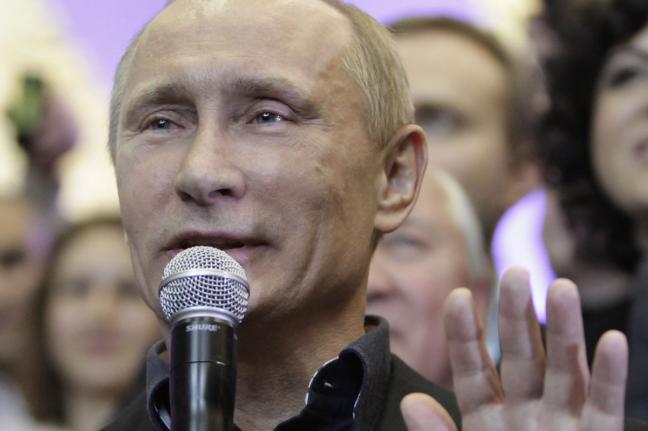-
Tips for becoming a good boxer - November 6, 2020
-
7 expert tips for making your hens night a memorable one - November 6, 2020
-
5 reasons to host your Christmas party on a cruise boat - November 6, 2020
-
What to do when you’re charged with a crime - November 6, 2020
-
Should you get one or multiple dogs? Here’s all you need to know - November 3, 2020
-
A Guide: How to Build Your Very Own Magic Mirror - February 14, 2019
-
Our Top Inspirational Baseball Stars - November 24, 2018
-
Five Tech Tools That Will Help You Turn Your Blog into a Business - November 24, 2018
-
How to Indulge on Vacation without Expanding Your Waist - November 9, 2018
-
5 Strategies for Businesses to Appeal to Today’s Increasingly Mobile-Crazed Customers - November 9, 2018
Russian Federation steamrolls Western cheese, fruit to enforce ban
President Vladimir Putin’s order to destroy the food underlines the Kremlin’s determination to enforce the ban amid continuing tensions with Europe and the U.S. over the Ukrainian crisis. “There are lots of people in our country who could benefit greatly from these goods”.
Advertisement
A presidential decree binding to destroy imported food products covered by Russia’s embargo imposed as a countermeasure to western sanctions against Moscow over its stance on developments in neighboring Ukraine comes into force in Russian Federation on Thursday, August 6.
On Thursday, more than 280,000 Russians had signed an online petition on website Change.org calling for seized food to be given away to the needy.
The controversial move has prompted criticism from politicians and activists and a rare outcry from legions of ordinary Russians, who say the produce could feed the country’s poorest.
Kremlin spokesman Dmitry Peskov admitted that food destruction “visually, perhaps, is not very pleasant” but asked media not to “exaggerate the problem” because the food is “pure contraband”.
Reportedly, the authorities of the Belgorod region are planning to bulldoze seven tons of chees that was arrested on the border.
“Agricultural goods, raw materials and food originating from a country that has made the decision to introduce economic sanctions against Russian entities and/or individuals… are subject to destruction”, the president’s decree read.
Solovyov hit the mark with this comment, for food occupies an nearly sacred place in Russian culture.
Describing the “food neurosis” experienced by those who grew up in the Soviet era, Russian journalist Valery Panyushkin wrote Tuesday about how his grandmother used to sweep even the breadcrumbs off the table after meals to use them again because food was so scarce. “She would cut out the bit where I’d left my teeth marks and save the rest of the slice for the next meal”. “Come to your senses, Mr President, finally take at least some pity on your people!” He claims now to be a devout Orthodox Christian and has repeatedly sought to bolster his power by evoking the wartime spirit. It applies to food from the United States, EU, Canada, Australia and Norway.
Advertisement
The government regulation published on July 31 doesn’t specify a method for destroying confiscated food items, saying that it should be done by any available method that presents no danger to the environment. European food and art were considered a symbol of refinement and modernity, as well as a potential threat to Russia’s traditional way of life as early as the 18th century.





























